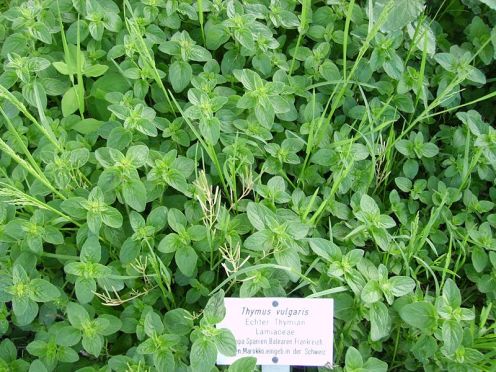Natural Antiseptics and Antibacterials
Happy St. Patrick’s Day, seed exchangers! I’m always reading different blogs, and today I was reading about how the overuse of most store-sold antiseptics and antibacterials may create drug-resistant strains of bacteria, and how they often contain harmful chemicals with nasty names like triclocarban and triclosan. Triclocarban is a common additive in many antibacterial soaps and deodorants and affects your hormones. Yes, those hormones, among others. It’s considered to be on of the suspected endocrine disruptors you may hear about on the news or blogs, and it interferes with human sex hormones and reproductive development, causing reduced fertility, early puberty and increases in breast, ovarian and prostate cancers.
Triclosan is also found in some antibacterial soaps, and while it is promoted to be safe for most people in tiny amounts by industry, research suggests that it might cause subtle harm to humans in critical developmental stages including in utero, early childhood and adolescence. It is also a target for further research into the environmental contributors to autism.
Several million pounds of these chemicals are being dumped in our waterways annually in ever larger amounts, and they end up in our drinking water, further contributing to the problem. According to a recent CDC study, 75% of Americans age 6 and older have had detectable amounts of triclosan in their urine. Consider this: triclosan and triclocarban are found in 76% of all liquid soaps and 26% of bar soaps, as well as many other products such as toothpaste, plastics, and deodorants.
Further, in water treatment plants, they get absorbed with the sludge that passes through, and this is then sold as a fertilizer. The chemicals eventually end up breaking down into dioxins, which bioaccumulate, and are in all likelihood human carcinogens. Yikes!
What does all of this have to do with seeds, or plants? Well, I have found out through research that an essential oil in common thyme (Thymus vulgaris) is a natural antiseptic and antibacterial! Cool, eh?

Common thyme (Thymus vulgaris)
The name thyme is derived from the Greek word thymos, which means perfume, and was used as incense in Greek temples. Common thyme contains a chemical called thymol, which has strong antiseptic properties. Ancient Egyptians used thymol for its ability to help in the preservation of mummies. It is known to kill bacteria and fungi. Thymol is also found in the bee balms wild bergamot (Monarda fistulosa) and Monarda didyma (whose common names include bergamot, scarlet beebalm, scarlet monarda, oswego tea, or crimson beebalm). The Blackfoot Native Americans recognized this plant’s strong antiseptic action, and used poultices of the plant for skin infections and minor wounds. A tea made from the plant was also used to treat mouth and throat infections caused by dental caries and gingivitis. Thymol has also been found to be useful in controlling varroa mites in bee colonies, thus helping in the colony collapse disorder problem.
The essential oil of thyme can assist with nervous complaints, respiratory problems, poor circulation and problems of the digestive system and the urinary tract.
- Burners and vaporizers
- In vapor therapy, thyme oil can be helpful with bronchitis, coughs, respiratory problems, sinusitis, mucus congestion and muscular aches and pains.
- Blended oil
- As a blended massage oil it can assist with arthritis, bronchitis, colds, flu, coughs, gout, bruises, eczema, mucus congestion, muscular aches and pains, obesity and rheumatism.
- Mouthwash and gargle
- Diluted as a mouthwash or as a gargle, thyme oil can help with gum infections and tonsillitis.
- Neat application
Apply directly, or used neat, thyme oil could help with animal bites and boils but use with care, because of the possible of the risk of skin irritation.
There are alternate options out there to the mass-produced, profit-above-all products out there. I encourage you to do your research and find a chemical-free alternative, or go ahead and grow these plants and start using them as antiseptics and antibacterials. Again- research possible side effects before trying, please. I may experiment with making my own soap and shampoo; if I do, I know I’ll be adding thymol or some essential oil of thyme.
*Thyme is a very potent oil and should not be used during pregnancy or in cases of high blood pressure. Because of the phenols (carvacrol and thymol), which can irritate mucus membranes and cause skin irritation, it should not be used for skin care products, and in general should be used in low concentrations. When it is used in massage therapy, it would be a good idea to do a skin patch test to determine if the person is sensitive to it.


U WOULDN’T HAVE ANY SEEDS U WANNA SELL OR HAVE A WEB SITE WHERE I CAN GET THE THYMUS VULGARIS?? THNX